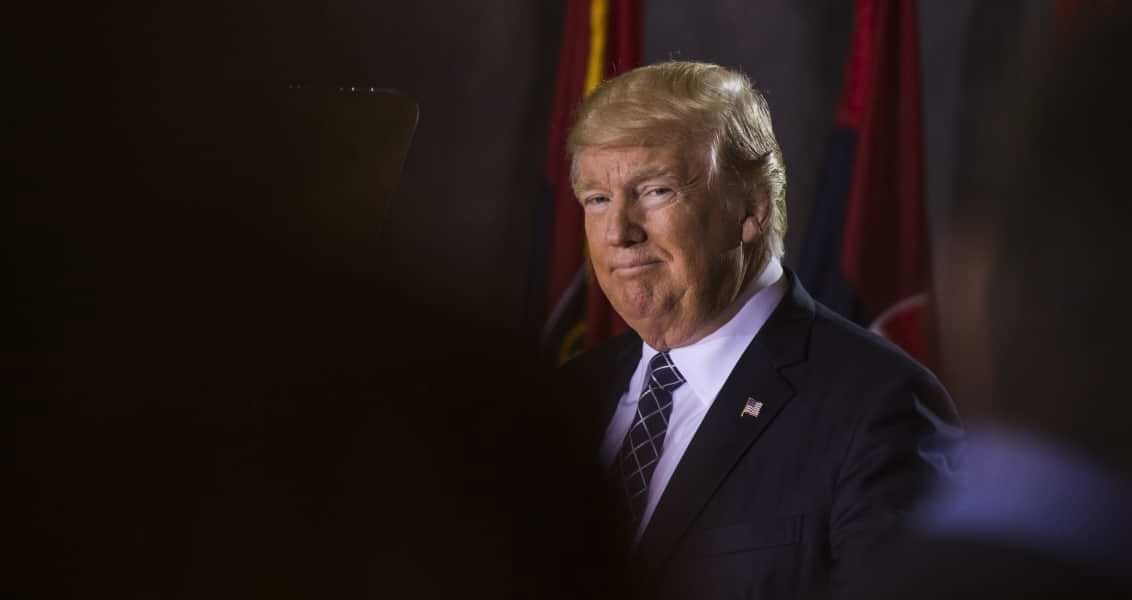Washington’s decision to arm the People’s Protection Units (YPG), the PKK’s Syrian franchise, was not received well in the Turkish capital Ankara. The controversial plan, which some policymakers describe as a major crisis in Turkey-U.S. relations, rendered President Recep Tayyip Erdoğan’s upcoming meeting with U.S. President Donald Trump more important. The fact that Mr. Erdoğan identified the plan as an “introduction” and suggested that he would hold the “final talks” with Mr. Trump personally suggests that the Turks are maintaining a certain level of hope.
Of course, the upcoming meeting between the two leaders will establish which role the U.S. wants Turkey to play in the administration’s Middle East plans. However, it is already clear that Ankara will find it difficult to work as closely with the Trump administration as they originally intended. Moreover, it is safe to assume that it will take longer than expected for Mr. Trump to repair Washington’s ties with U.S. allies in the Middle East, which were severely harmed by the Barack Obama administration, if he indeed can. One thing is clear: The Trump administration still hasn’t developed a coherent Middle East policy. Right now, Washington focuses on the need to work more closely with Gulf countries to contain and isolate Iran. Moving forward, it will become clear where Mr. Trump stands with rapprochement with Russia and the political transition process in Syria. Washington’s counter-Daesh policy, however, remains the same, as it became clear last week when Mr. Trump approved CENTCOM’s plan to advance towards Raqqa with the YPG.
In the wake of his decision to arm the PKK’s Syrian branch, the U.S. president is unlikely to succeed in his efforts to address Turkey’s concerns in the meeting with President Erdoğan. Provided that the Turks want to exchange views on the future of Syria and Iraq, along with U.S. plans regarding Iran, Mr. Trump should provide his Turkish counterpart insights into his vision for the Middle East. If there is anything left from the strategic partnership between Washington and Ankara, the Americans will need to explain how they hope to maintain the territorial integrity of Syria and Iraq as well as what lies ahead for the PKK-YPG. After all, the Turks are determined to fight the PKK whether the U.S. is willing to coordinate their actions with Ankara or not. Without a concrete roadmap, the Turkish leadership won’t be persuaded by the U.S. commitment to clearly separate the PKK from the YPG. Unless the PKK’s entire senior leadership is decapitated, the organic ties between the two entities cannot realistically be severed.
Nor would it be meaningful to recommend Turks launch a new peace process with the PKK. Engaging in disarmament talks with the group will not only undermine the post-coup consensus in Turkey but also destroy the AK Party’s (Justice and Development Party) partnership with the MHP (Nationalist Movement Party). To be clear, the YPG’s statement that it would not target Turkey isn’t seen as anything more than a tactical move by Ankara either. Policymakers in the Turkish capital clearly recall that it was the Obama administration’s decision to work with the YPG in Syria that derailed the peace process because the PKK was tempted by the possibilities across the southern border. Having secured U.S. support, the PKK-YPG won’t just turn their back on the dream of independence or their pan-Kurdish ideology.
To be clear, Ankara won’t stop exploring new ways to fight the PKK-YPG in light of last week’s decision. The YPG might be a useful tool in the war against Daesh for the Americans, but it remains a legitimate target for Turks, who will shoot on sight. Therefore, Washington will find itself at odds with Turkey’s strategic goals unless Ankara’s concerns about the PKK are addressed.
President Erdoğan’s statements to the press on his way back from Kuwait should serve as a reminder to the Trump administration that it is impossible to by-pass Turkey in the Middle East, “It is unthinkable that decisions will be made in the Middle East without Turkey’s involvement. Whenever people call shots without consulting with Turkey first, they end up paying a heavy price. They should instead think about what they can do with Turkey.”
Does Mr. Trump really need to repeat the mistakes of his predecessor?
[Daily Sabah, May 15, 2017]
In this article
- Foreign Policy
- Opinion
- 2017
- Arabian peninsula
- DAESH
- Daily Sabah
- Donald Trump
- gulf
- Iraq
- Islamic Republic of Iran
- Kurdistan Workers' Party Terrorist Organization (PKK)
- Kuwait
- Middle East
- People's Protection Units (YPG)
- PKK - YPG - SDF - PYD - YPJ - SDG - HBDH - HPG - KCK - PJAK - TAK - YBŞ
- Recep Tayyip Erdoğan
- Russia
- Strategic Partnership
- Syria
- Syrian Civil War
- Syrian Conflict
- Syrian Crisis
- Terror
- The President of the Republic of Türkiye
- Trump Administration
- Turkish Foreign Policy
- Turkish President
- Turkish-American Relations
- Türkiye
- Türkiye-US Relations
- Türkiye's Justice and Development Party | AK Party (AK Parti)
- Türkiye’s Nationalist Movement Party (MHP)
- United States (US)
- US President



